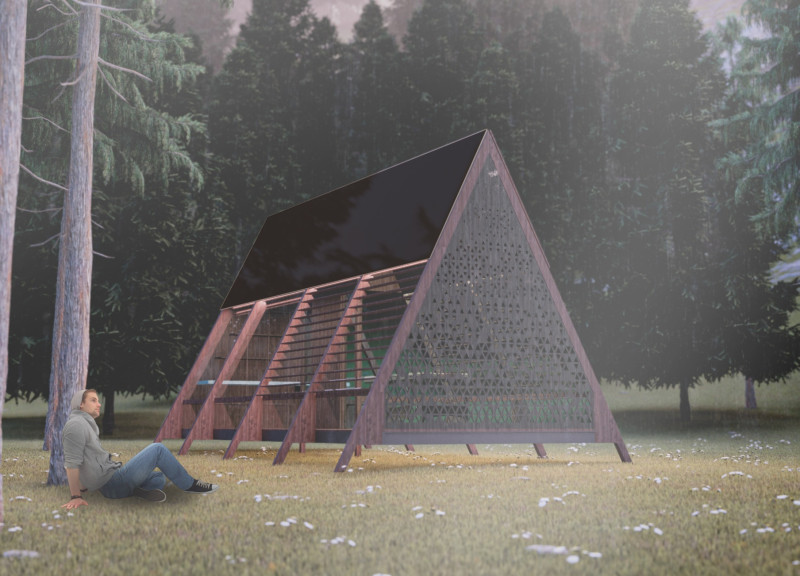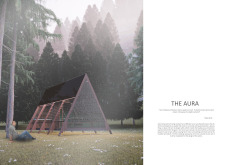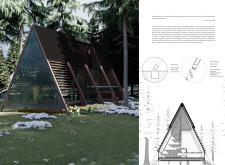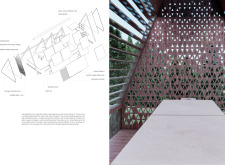5 key facts about this project
The design features cabins that promote healing and well-being, set within a landscape of tall pine trees. The overall concept emphasizes a strong connection between the built environment and nature. These cabins serve as peaceful spaces for meditation and personal reflection, encouraging occupants to engage with their surroundings through intentional architectural choices.
Triangular Geometry in Design
The project uses triangular geometry as a core element, creating a meaningful relationship between the guest, the healer, and the Divine Energy Source. This shape facilitates interactions focused on wellness and personal experience. The arrangement of spaces around this geometric form allows for both individual and shared activities, enhancing the overall atmosphere of healing.
Elevated Structure
Each cabin is elevated, which enhances its interaction with the landscape. This elevation reduces disruption to the ecosystem and provides clear views of the natural surroundings. The raised design creates a sense of openness and encourages occupants to feel more connected to the environment, aligning their experiences with the beauty of nature.
Sensory Elements and Aromatic Gardens
A unique aspect of the design is the inclusion of an aromatic garden featuring five sacred plants: agarwood, sandalwood, frankincense, Palo Santo, and cistus. This garden introduces rich scents that bolster the experience within the cabins. By integrating these sensory elements into the design, the project highlights the important role nature plays in promoting well-being.
Materials and Sustainability
Locally sourced materials like cork oak and maritime pine are used, reflecting the landscape and contributing to sustainable building practices. The cabins are designed to maximize natural light, which supports energy efficiency. This focus on material choice complements the goal of creating a space that positively impacts both the occupants and the environment.
The cabins encourage occupants to engage with the natural world around them while offering a calming retreat for meditation and healing.





















































